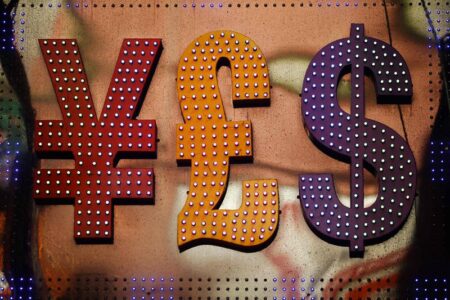Written by Gleb Bryansky
MOSCOW (Reuters) – There appears to be a new rule in Russia: Don’t mention war in connection with the rouble.
Russian media and analysts at state-controlled banks have been largely silent on the possible connection between the ruble’s 9% depreciation against the US dollar and Ukraine’s surprise attack on the Kursk region.
The ruble’s slide began on August 6, the first day of the attack, the largest of its kind by a foreign power on sovereign Russian territory since World War II.
Foreign banks are the main sellers of the Russian currency, currency traders told Reuters on condition of anonymity due to the sensitivity of the situation.
The ruble touched a 10-month low against the dollar and its lowest level against the yuan since June 24 in the session on Aug. 13. State banks attributed the decline mostly to economic factors.
Analysts at state-owned Sberbank, Russia’s largest bank by far, attributed the U.S. sanctions on the Moscow Stock Exchange, imposed on June 12, to a reduction in foreign currency sales by exporters.
“Issuers may have reduced currency sales volumes in recent days. This is due to the fact that requirements for fiat currency sales have become more lenient, and tax and dividend periods have ended,” Sberbank said in a note.
Financial Shield
The Russian Central Bank has not made any comment on the ruble’s fall. The Russian government did not respond to a request for comment.
Leading Russian business media reported on the fall in the value of the ruble, but did not link it to the attack on Kursk.
The business news portal RBC quoted analysts as saying that the reason for this is the contraction in exports and the decrease in foreign exchange sales requirements by exporters.
The news was also absent from Russian state television news broadcasts and talk shows, as well as from the websites of state media outlets.
The refusal to link the ruble’s fall to events taking place just 530 kilometers (330 miles) southwest of Moscow illustrates the efforts within Russia to prevent bad economic news from reaching the wider public.
Russia seeks to present its $2 trillion economy as a self-sufficient bastion capable of withstanding the immense pressure of Western sanctions, the most severe ever imposed on a major economy.
“Our financial situation is strong,” Finance Minister Anton Siluanov said in a speech on Wednesday.
“It is important for us to build this financial shield so that we can withstand all the financial pressure that anyone wants to put on us… and that is exactly what is happening now,” Siluanov said.
One trader, speaking on condition of anonymity, suggested that the heavy ruble sales in recent days may also be linked to an upcoming halt in remittances abroad by Austria’s Raiffeisen Bank.
As the ruble began to rise on Wednesday, some analysts tried to rule out any link between the attack and the ruble’s decline, while others predicted it would stabilize soon.
Economist Mikhail Belyaev said linking the currency’s decline to the Kursk incursion was an approach “that, in my opinion… has nothing to do with reality.”
